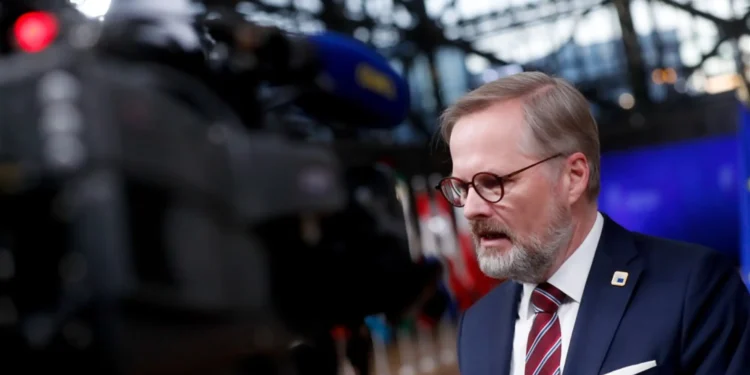Brussels (Brussels Morning) – The European Council bans four Russian media outlets in the EU for spreading propaganda supporting Russia’s aggression against Ukraine but allows other activities like research and discussions.
What Russian Media Outlets Were Banned by the EU?
The European Council decided to discontinue the broadcasting activities in the European Union of four additional media outlets, which disseminated and defended the Russian propaganda and war of aggression against Ukraine. It includes Voice of Europe, RIA Novosti, Izvestia and Rossiyskaya Gazeta.
What Prompted EU to Ban Russian Media Channels?
These media outlets are under the endless direct or indirect control of the supervision of the Russian Federation and have been important and instrumental in bringing forward and sustaining Russia’s war of aggression against Ukraine and the destabilisation of its neighbouring nations.
In line with the Charter of Fundamental Rights, the actions agreed will not stop the targeted media outlets and their staff from carrying out moves in the EU other than broadcasting, e.g. research and discussions.
Why Is the EU Targeting Russian Propaganda Media Outlets?
The Council states that the Russian Federation has pledged to a systematic, international campaign of media and data manipulation, interference and grave warping of facts in order to justify and defend its full-scale aggression against Ukraine, and to improve its strategy of destabilisation of its neighbouring nations, and of the EU and its member states.
In certain, the propaganda, information manipulation and interference actions have repeatedly and consistently targeted the Ukrainian state and its management, Ukrainian citizens, as well as the European political parties, particularly during election periods, as well as targeting civil society, asylum petitioners, Russian ethnic minorities, gender minorities, and the operating of democratic institutions in the EU and its member nations.
How Is the EU Responding to Russian Aggression?
In its conclusions of 21 and 22 March 2024, the European Council reaffirmed the EU’s steadfast backing for Ukraine’s independence, sovereignty and territorial integrity within its internationally recognised borders and its fair right of self-defence against Russian aggression. It also called for further efforts to weaken Russia’s ability to persist in waging its war of aggression, including by strengthening sanctions.
The EU and its member states firmly condemn Russia’s brutal war of aggression against Ukraine and the unlawful annexation of Ukraine’s Donetsk, Luhansk, Zaporizhzhia and Kherson regions. They also criticise Belarus’ involvement in Russia’s military aggression. Since February 2022, the European Council and the Council of the European Union have been regularly discuss the situation in Ukraine from different perspectives.
EU leaders insisted repeatedly that Russia immediately discontinue its military actions, unconditionally withdraw all forces and military equipment from Ukraine and fully respect Ukraine’s territorial integrity, sovereignty and independence. They stressed the right of Ukraine to choose its own destiny and praised the people of Ukraine for their courage in defending their country.
In reaction to the military aggression, the EU has massively extended sanctions against Russia, by adding a considerable number of persons and entities to the sanctions list, and by adopting unusual restrictive measures. The EU has demonstrated unity and strength and has provided Ukraine with humanitarian, political, financial and military support.




